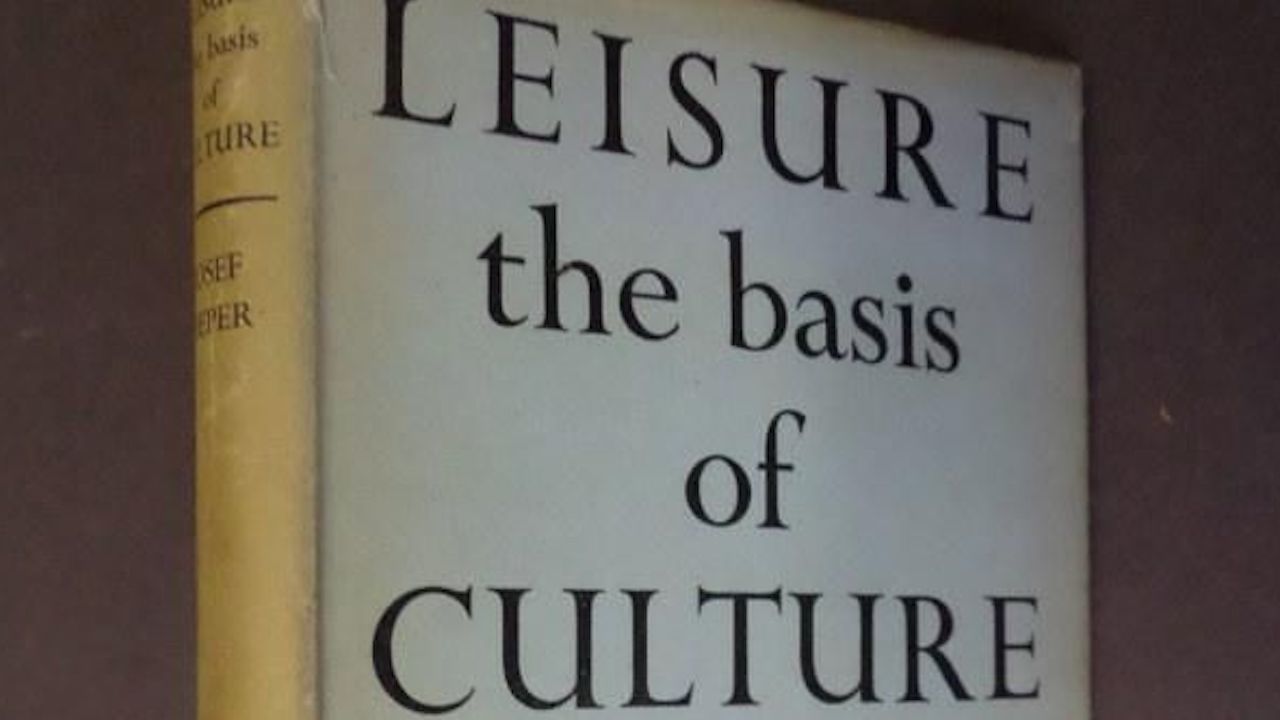Leisure the Basis of Culture
by Josef Pieper with Introduction by T. S. Eliot
Josef Pieper, a German Catholic philosopher, is unknown to the American layman, and the career of his small but profound book in this country will teach us something about our capacity to receive criticism from a point of view to which most of us are hostile. Our failure to reach a thorough understanding of the rapid totalitarian drift of Western culture, says Pieper, is the result of an earlier failure of thought which occurred when philosophy was completely divorced (at the time of Kant) from theology. This looks at first like a comparatively useless academic distinction, but its consequences in Pieper’s profound insight are impressive and even formidable.
The “emancipation” of philosophy left it vulnerable to the modern mystique of “work,” which has eliminated from philosophy the ancient pursuit of wisdom based upon a just notion of “leisure.” The result is that philosophy has become either the errand boy of the natural sciences or the playboy of linguistic shell-games whose name at present is logical positivism.
On this point T. S. Eliot in his introduction observes: “For as surrealism seemed to provide a method of producing works of art without imagination, so logical positivism seems to provide a method of philosophizing without insight and wisdom.” The force of this observation may well be lost on us, who as a people have not had a vigorous theology since the eighteenth century. Largely because of this lack we take for granted a long chain of inevitable “separations”—not only of theology from philosophy, but of church from state, religion from education, work from play, love from sex, the individual from the community.
The difference between work and leisure which we take for granted today follows the presupposition that leisure is merely compensatory—an empty, compulsive escape from dehumanized labor. This is precisely the theme of Josef Pieper’s book. His ultimate purpose is to restore the identity of leisure and the contemplative life, which has a tradition, even older than Christianity, in Plato and Aristotle. although contemplative leisure is “listening” and receptive, it is not passive and slothful. It is rather a quality that the social man, when his being is properly ordered toward a certain end, may achieve in his ordinary activity, which may be quite as strenuous as the compulsive escape.
From this point of view the end of man is not labor, for the end of labor must be the end of man himself. This end cannot be the “loving search for any
kind of wisdom” but rather the “wisdom which is possessed by God.” We must look sharply at the word “search.” It distinguishes philosophy, whose search is never done, from Christian theology, or the ordering of revelation, which is final, but which we never fully understand.
We never “understand” it because ratio, or pure reason, is only operative and empty, and without wisdom. And this kind of reason, the servile work of the mind, has suppressed the liberal and receptive leisure of intellectus, the spiritual activity of the free man. Thus, though philosophy and theology are distinct modes of the mind, philosophy has no end without theology; it doesn’t know where it is going.
Pieper then proceeds to a comprehensive indictment of a decaying civilization. The modern reduction of all human action, including philosophy, to servile labor is daily creating a proletarian society from top to bottom, from executive to machine tender. This society uses men for ends that defy definition beyond the latest “project” or “plan,” economic, social or political.
Pieper’s message for us is plain. The American democracy is not blissfully immune to the Western blight; we have in fact done our part in generating the totalitarian epidemic. The idolatry of the machine, the worship of mindless know-how, the infantile cult of youth and the common man—all this points to our peculiar leadership in the drift toward the slave society. “Leisure the Basis of Culture” may help to show us that we had not known all this as well as we had supposed.
*Originally published in The New York Times on Sunday, February 24, 1952.










